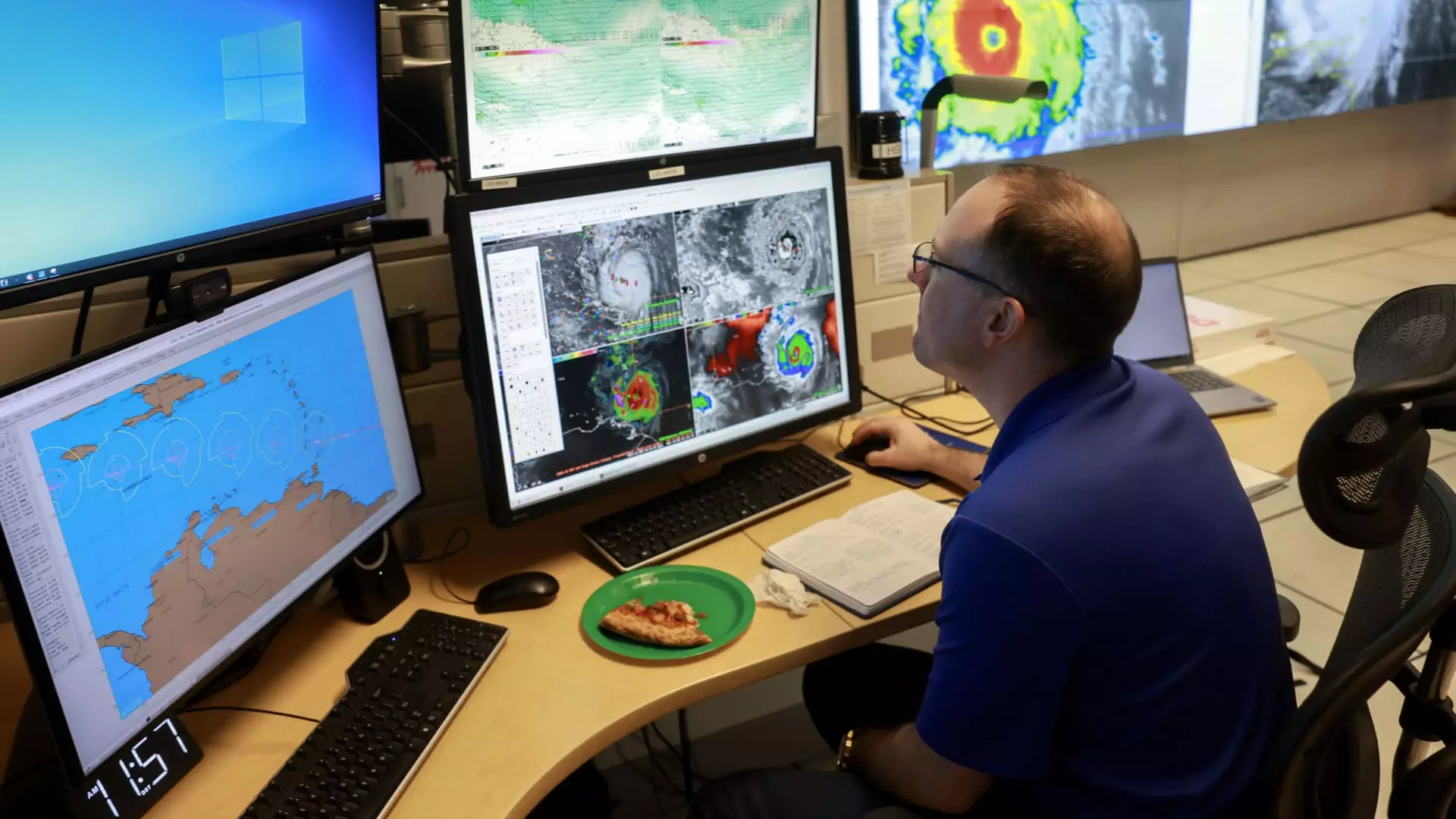Hurricane Beryl, the strongest-ever hurricane in July, has left a trail of destruction in the Caribbean. This tropical cyclone has set numerous records that experts attribute to climate change, developing faster and earlier in the year than similar phenomena. It holds the title for the strongest hurricane on record for both June and July and experienced the most rapid intensification ever seen before Sept. 1.
Scientists have long warned that global warming would lead to more rapid intensification of hurricanes due to warmer waters. This phenomenon gives people less time to prepare for the impact of these extreme weather events. The National Oceanic and Atmospheric Administration (NOAA) had previously forecast an 85% chance of an “above-normal” 2024 hurricane season in the Atlantic, predicting between 17 and 25 named storms, with eight to 13 becoming hurricanes.
The forecasted increase in hurricane activity is attributed in part to the El Niño-Southern Oscillation, a climate pattern that influences water temperatures and strengthens hurricane activity in the Pacific or Atlantic. Additionally, a La Niña phase, characterized by cooler ocean surface temperatures in the Pacific, is expected to develop between July and September. Record-warm ocean temperatures in the Atlantic Basin have also been noted, with levels in May surpassing those typically seen in late August.
As Hurricane Beryl continues its path of destruction, the human cost is becoming increasingly evident. At least six people have been reported dead, with fatalities in Grenada, Carriacou, St. Vincent and the Grenadines, as well as northern Venezuela. Jamaican Prime Minister Andrew Holness declared an island-wide curfew in anticipation of the hurricane’s impact, emphasizing the threat of life-threatening winds, storm surges, and floods. Holness pointed to climate change as a key factor in the intensity of the storm, noting the disproportionate impact on regions like the Caribbean.
The aftermath of Hurricane Beryl has left many communities in urgent need of assistance. Reports from affected areas describe widespread homelessness, shortages of food, water, first aid kits, and power. The island of Union Island has been particularly hard hit, with one resident stating that “almost the whole island is homeless.” As recovery efforts begin, it is crucial for local and international aid organizations to provide support and resources to those affected by the storm.
Hurricane Beryl’s unprecedented strength and early arrival serve as a stark reminder of the increasing risks posed by climate change. As global temperatures rise and weather patterns shift, the frequency and intensity of extreme weather events like hurricanes are likely to continue. It is essential for governments, communities, and individuals to prioritize climate action and disaster preparedness to mitigate the impact of future storms.

Leave a Reply